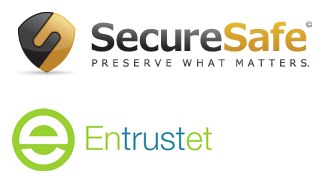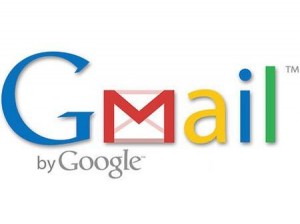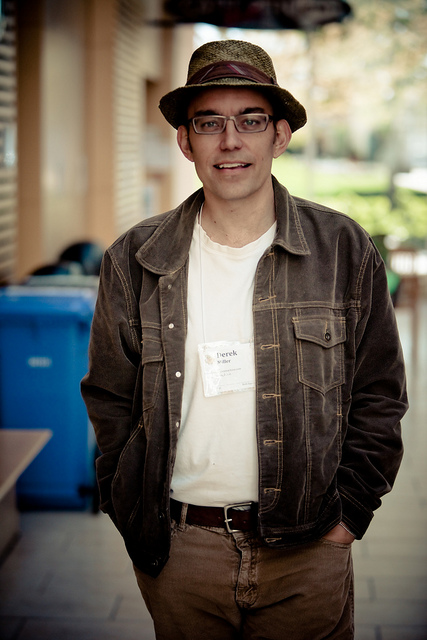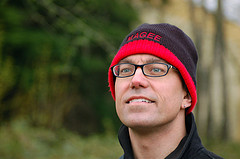Family’s Court Order for Facebook
Recently, I spoke with a Jessica Hopper at NBC Rock Center who was investigating digital legacy. Her story features the Stassen’s, a family who is seeking some answers behind their son’s suicide and are turning to Facebook to find them.
The family has obtained a court order to gain access to their son’s Facebook account on grounds that they are heirs to his estate, and as such, they are entitled to all of his assets, including digital digital, and the contents of his Facebook account. Aside from the publicly posted items, they are curious about what private information might reveal about his death.
His parents speak candidly about it in this video:
Visit msnbc.com for breaking news, world news, and news about the economy
In the supporting article, Peter Swire, a law professor at Ohio State University, commented, “What happens if a 21-year-old had a safe deposit box at the bank, the answer is the safe deposit box belongs to his estate and whoever controls the estate gets to open the box.”
“When somebody dies, the person who is responsible for taking care of the individual’s asset is supposed to be complying with what the individual wanted and protecting the individual,” said Naomi Cahn, a George Washington University law professor. “Because so many people have not thought about this, we don’t know what the person actually wanted…we can all imagine what’s in internet accounts. There may certainly be cases where the person who died would not have wanted anyone to get anywhere near the person’s account.”
Read the rest of the article here.
Where do you stand on this? Do you believe that the heirs to the estate should have full access to digital accounts? Or do you believe that the online services have a responsibility to protect their users’ privacy, even after death?
SecureSafe Acquires Entrustet
 Swiss-based company DSwiss has announced their acquisition Madision, Wisconson-based competitor Entrustet this morning. The acquisition gives DSwiss’ SecureSafe product a wider reach into the US market.
Swiss-based company DSwiss has announced their acquisition Madision, Wisconson-based competitor Entrustet this morning. The acquisition gives DSwiss’ SecureSafe product a wider reach into the US market.
Both companies provide users with ways to archive digital assets and preserve passwords for heirs. Where SecureSafe’s emphasis is on security, Entrustet offered user a directory of lawyers who were knowledgable on wills and estate planning for digital assets which SecureSafe has said will be invaluable for their expansion into the US market. Entrustet also has a feature called Account Incinerator that deletes online accounts upon your passing.
Entrustet clients were informed of the acquisition by email, which included a voucher for one year of SecureSafe service. They have until have until June 15th to redeem it by creating a new account on SecureSafe and migrating their own data from Entrustet. User data is available on Entrustet servers until July 31st, before it is permanently deleted.
If Entrustet customers choose not to renew the paid version of SecrueSafe after the first year, they will have access to a free version with a lower level of password and document storage and fewer features. The paid version ranges from $1.50 to $12.90 per month.
SecureSafe’s also invites Entrustet users to download their free iPhone and iPad apps.
Formerly known as DataInherit, that name is now the digital asset beneficiary feature of the SecureSafe product. Both Entrustet and DSwiss were founded in 2008.
Derek K. Miller’s Final Post
Derek K. Miller
June 30, 1969 – May 3, 2011
Read Derek K. Miller’s final Penmachine blog post here.
(Cached version.)
Derek K. Miller was an incredible man. He blogged his way through stage 4 metastic colorectal cancer. He coined the term “digital executor” in 2008. He was a father, husband, musician, podcaster, photographer, writer and inquisitive soul.
He blogged for more than 10 years, leaving behind a gift for us all. His children, Lauren (11) and Marina (13), will have an archive of their father’s insights and feelings about the world as a treasured part of their family history.
Derek’s father, Karl, was quoted today in the Vancouver Province newspaper, “He was proud of his blog, and now it is his legacy. It connects him to the world, and to his family, forever. We were there for him, but Derek was comfortable sharing his thoughts with a worldwide community.”
For everyone, but particularly those who are facing death as a result of cancer or other means, his blog shows how he extracted every last drop of joy that he could out of his life before the end. From his final post:
The world, indeed the whole universe, is a beautiful, astonishing, wondrous place. There is always more to find out. I don’t look back and regret anything, and I hope my family can find a way to do the same.
My Interview with Derek K. Miller
I had the great fortune of having a long conversation with Derek about digital legacy, digital identity and technology on May 28, 2010. Despite our intentions at the time, it would be our one and only discussion. He wrote a blog post about our “gabfest” then, which included his thoughts on preparing a digital legacy. I recorded our talk, with his permission, as an alternative to note-taking. When I wrote my post at the time, I promised to write more about the discussion we had. As sometimes happens in life, I didn’t get back to that plan.
As a tribute to Derek and his contribution to the topic of digital legacy and digital executorship, I’ve decided to post the entire unedited conversation here – late beginning, sketchy audio in places, and free-flowing. It’s clear from listening to it again how thoughtful and passionate Derek K. Miller was about technology and the effects that it has on our lives.
I’m feeling a loss today, but am grateful that he did so much to preserve his digital self for all of us to discover and learn from.
Tomorrow is Digital Death Day in Mountain View, CA. In our interview, we discussed last year’s event and I hope that Derek’s contributions to our burgeoning field are remembered there tomorrow.
My condolences to his wife Airdrie, Marina, Lauren and the rest of his family and loved ones.
Thanks to Dave Delaney who, while mourning the loss of his friend, volunteered to help me get this audio online.
Additional Resources:
CBC Radio “On the Coast” interview, rebroadcast May 4, 2011
CBC Radio “Spark” on Derek K. Miller, May 5, 2011
Vancouver Sun “A Death Foretold“, May 5, 2011
The Man Who Coined Digital Executor
About 18 months ago, just as I was making it known that I was researching digital legacy issues, several friends told me about Derek K. Miller and that I needed to have a conversation with him. Well today, that finally happened.
Derek lives in Vancouver, British Columbia and is as close to a digital native as a (soon-to-be) 40-year-old could possibly be. He told me stories of dialing into mainframes in the ‘83, and of being active on BBS and other early web-sharing activities. Derek has had a web site for more than 20 years and has been blogging for 10 years. He’s also a writer, editor, musician, photographer, podcaster, husband, father and tech guy. And he’s fighting stage 4 metastatic colorectal cancer, which is one reason why he has given much thought and consideration to the idea of digital legacy over the last few years.
To best estimates, Derek is the first person on record to use the term “digital executor.”
Spark
Way back on April 30, 2008, Derek appeared on a CBC radio show called “Spark” hosted by Nora Young. (Listen to the 20 minute interview.) On it, he talked about having such a vast amount of content online and the need for people to have a digital executor to carry out your wishes after you’ve passed away. Back then, he discussed many of the same concepts and concerns that I’ve been exploring.
I read in the Spark blog comments that host Nora Young stated,
I can imagine a whole new category of ‘personal digital archivists’.
The timing of this comment is particularly interesting because it was in spring and summer 2008 that Bob Stewart founded VitalLock and Jeremy Toeman came up with the idea for Legacy Locker.
It is also at that same time that I had a seminal discussion about this topic with a group of developers and techno-early-adopters about what happens to your online communities and digital footprint when you die. It was that discussion that inspired me to dig deeper, and which has led me to research, write and speak about digital legacy issues.
Fast forward two years, and after my presentation at webcom, a discussion sprang up on Twitter and Derek’s name was raised as being the person who coined the term “digital executor.” Within a short time, Derek and I had made arrangements to have Skype chat and it was a thrill to finally speak with him today . (I promise to blog more about that chat another time but you can read about some of it in Derek’s post.)
Dave or Derek?
Derek echoed what he had said 2 years previous, that Dave Winer (the creator of RSS and pioneer in blogging and CMS technology) was early out of the gate writing about the longevity of his digital content in March of 2007, one whole year before the Spark interview.
I realized that if I were to die now, my web presence might last a month or two, but probably not much longer. … If I want these things to last, I realized, I would have to invest to future-proof the content, as best as I can.
Despite Dave Winer’s advanced thinking on the preservation of content, he did not once use the term”digital executor.” So, unless someone can prove to me otherwise, I’m going to credit Derek K. Miller with being the first to use the term “digital executor.”
What a privilege it was to get Derek’s perspective on digital legacy issues. I look forward to our next conversation.
Australia: Unwitting Law Firms and Digital Undertakers
I recently discovered this very well produced and funny video from Hungry Beast, a weekly topical show on the Australian Broadcasting Corporation (ABC).
As technologies move so quickly, the law is often slow to keep up. In the U.S., some law firms are advising their clients to leave instructions on their digital selves in their wills. But, not here in Australia. We spoke to ten firms, and none of them had even thought about it yet. But, they did all say, “Thanks for the heads up.”
As more and more of our lives take place online, it’s likely that we’ll see the rise of the Digital Undertakers. Companies employed to scour the web after you die to eradicate the more sensitive parts of your online self, ensuring that you leave the impression you want to in the everlasting digital afterlife.
What do you think? Do you think we’ll see “the rise of the Digital Undertakers?” Please let me know in the comments.
HOW TO: Use Gmail For Digital Executor Instructions and Access
DIGITAL WISHES AND ACCESS
In another post, I talked about assigning a digital executor to manage your online accounts and digital content after you pass. Often the next question is, how will your digital executor know your wishes? And how will they gain access to your accounts?
I gave you some ideas in the article in The New York Times on The Digital Afterlife that involved keeping track of all your accounts and placing the information in an encrypted file, sealed envelope or safety deposit box. These options are the most viable for people who don’t have a very large digital footprint, who don’t change or add account information often, or who have basic needs. For people who are very active online, documenting accounts and passwords on paper may become unruly to manage and become out of date easily. To address this, some online paid services offer the ability to notify designated people of your passing, forward your final instructions or messages and safeguard your logins and passwords.
But, I’ve come up with an easy and free way to handle all of your instructions, logins and passwords while keeping the information safe and secure: Gmail.
SET-UP
 STEP 1: Create a Gmail executor account to house all of the account information and specific instructions for your digital executor.
STEP 1: Create a Gmail executor account to house all of the account information and specific instructions for your digital executor.
STEP 2: Take an inventory of all of the digital assets you would like managed in some way after your passing. For instance, blogs, web sites, photo sharing sites, social networks, affiliate accounts, etc. Include on the list all of the email addresses you have registered and use on a regular basis along with their passwords. Don’t forget passwords to computers and the names or locations of important files on your hard drive.
STEP 3: For each asset, send an email to the Gmail executor account with the name of the asset in the subject line. In your email, include a link to the service, user name, and password. Also include the email address that the online service is registered to and its password (your executor may need access your email account to receive confirmation and notification emails, or to reset any online service passwords.) Finally, in the email, include the instructions to your executor of what you would like to happen with each asset after your passing.
STEP 4: If you want to leave any final messages, letters, videos or photos to be distributed or posted after your passing, you can email them with instructions to the executor account as well.
STEP 5: With your lawyer, update your will to designate your digital executor(s), include the Gmail email address and password, instructions to the executor on how to proceed and any special considerations that are unlikely to change over time. Remember, it’s best not to change the password to the Gmail executor account as it will mean making a change to your will.
STEP 6: Now, as you go about your day-to-day life, when your digital footprint changes – when you add an account, change a password, or you want to alter your intentions – simply update the information by sending an email to the Gmail account with the name of the asset in the subject line. Easy! As you are likely already at your computer or on your web-enabled mobile at the time you make a change to your online assets, sending a quick email to the Gmail executor account is a convenient way to manage your assets. Just remember, for security reasons, delete the email from your Sent folder.
STEP 7: If you plan on leaving a final letter or a prepared message for your executor to distribute to friends, family or social networks, use the Contacts listing to make their job easier. Include the names, email addresses, phone numbers and primary social network user name, if appropriate, of the closest people in your circles. Having this information at the ready will help your digital executor to follow through on your final wishes.
MAINTENANCE
The process of creating a Gmail executor account will create a record of digital accounts and last wishes, in chronological order, making it easy to find your latest password or instructions.
You may also choose to create labels for the emails to categorize them as work, household, legacy etc. Create filters to automatically label emails, auto-archive messages or even forward them to another email address.
If you have more than one digital executor, you can set up filters and labels for each of them to find their instructions more easily. Or, you may choose to create a separate Gmail account for each executor according to their role. Just be sure that you send the appropriate information to the right Gmail address and include both in your will.
You should periodically maintain your executor email account to delete out of date information, review your final intentions, update the information in the Contacts list and double-check that everything you want to be included is there.
Ensure that the reset email for the Gmail executor account is up to date at all times. This is the alternative email address that Gmail uses should the account need a password reset. Normally this would be your primary email address. Consider leaving this email address and password in your will or with your lawyer for backup.
FOR EMERGENCIES
This email system can also help you in case of emergency or calamity, like a fire or flood. Scan important documents like passports, birth certificates, credit cards, insurance policies, deeds, wills, prescription and medical information and save them as pdfs. Next, email them to your executor account and label the messages as “emergency”. Now, if you ever lose your documents, you’ll have a digital copy that you can reference once you have an Internet connection.
Furthermore, if you’ve managed to access the account in the aftermath of an emergency, you’ll have phone numbers and email addresses of your close personal network via the Contacts list to be able to send word of your location and condition.
STABILITY AND SECURITY
Some people have asked me about the long term stability and security of using Gmail to store their sensitive information vs. using another online service. Firstly, I think that it is highly unlikely that Google or Gmail will shut down any time soon. Stacked against the newness of some of the online ventures designed to keep my information, my confidence is with Google for longevity.
As for data security, there is always a risk, no matter how small. If we’re talking about a random hack attack on Gmail vs. a random attack on a service specifically oriented to hold digital legacy information, the odds say that, just by pure numbers, the Gmail account would be less likely to be hit. However, some people are distrustful of Google’s massive size, web-based location and remain unsatisfied by their informal “don’t be evil” motto.
Just as important paper files can be lost, stolen or destroyed, so can email and digital accounts be deleted, hacked or have their passwords misplaced. There is no perfect solution. Ultimately, it is up to each person to create a system that works for their own personal style and beliefs.
What do you think, does the Gmail approach seem like a viable solution to you? What would you change? What are your concerns?
What is a Digital Executor?
DIGITAL CARETAKER
I see the role of a digital executor as someone who becomes the caretaker of your digital life. According to your instructions, or your digital will, the designated person would perform account management for you. There are many functions you may want them to perform. For example, you may want them to:
- close certain social network accounts
- upload a prepared final blog post
- change your avatars
- ensure your heirs get your affiliate income
- archive your photos, videos, blog posts and other content
- notify your online friends that you’ve passed
- ensure that your web hosting is paid
- delete files from your computer
There’s a myriad of digital information that may need attention, both online and on your computer’s hard drive. So take some time to think about what is important to you and what you’d like preserved and archived for your work, your friends and your family.
CHOOSING A DIGITAL EXECUTOR
You may have one person that you trust to enact your wishes and take over management of all your digital affairs. However, perhaps it makes more sense to choose several people to perform different functions. If you have a small business, your web site, blog, affiliate accounts and Google AdSense account may best be managed by someone in your company who can see out your wishes. For Facebook, Twitter, Flickr and email accounts that are mainly for personal use, you may want to designate a family member or close friend. If you want certain files on your computer to be saved, forwarded, or in some cases deleted, you will need someone who is local to where you live or work and would be able gain physical access to it.
Whomever you choose, they should have the knowledge and ability to do what you ask of them in your final instructions. It would be best to choose a person who’s already familiar with the online world and has a modicum of technical savvy. Be conscious that some people who are very close to you may not have the emotional capacity shortly after your death to cope with notifying and fielding questions from your social networks or dealing with your personal email.
What would functions would you want a digital executor to perform? What kind of person would you choose for that role? Would you have more than one? Let me know in the comments.





